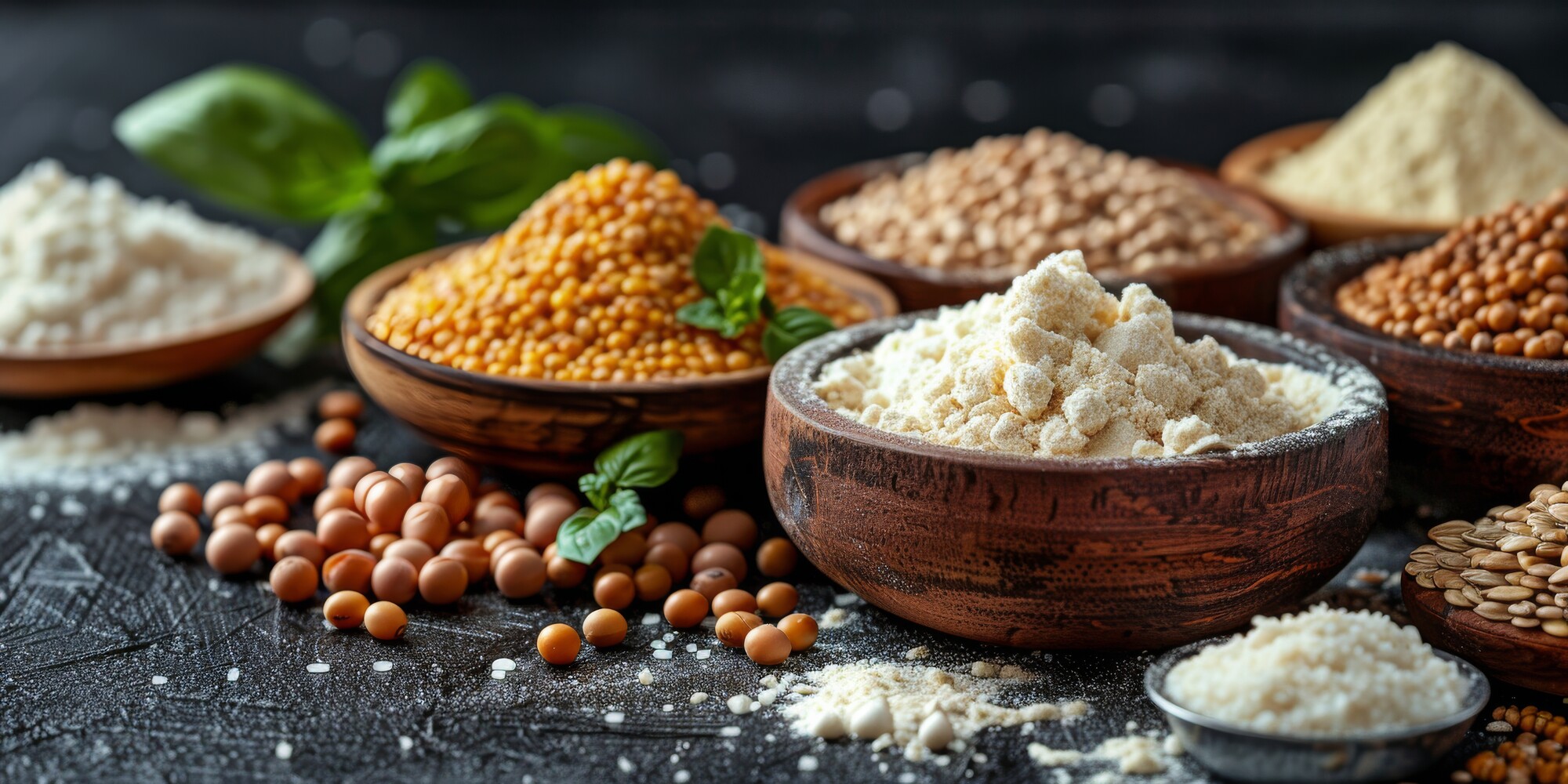Stubborn myths
Many people want to live healthier lives and wonder how they can best protect themselves from cancer. However, there are many myths that keep people from taking the right steps towards a healthier lifestyle. It’s high time to debunk a few stubborn myths surrounding colorectal cancer.
One such misconception is the assumption that only old people can get colorectal cancer. This is incorrect. Although the risk does increase with age, younger people also develop colorectal cancer, especially if the disease runs in the family [1, 2].

While the incidence of new cases starts to increase significantly in middle age, hereditary forms of colorectal cancer usually occur much earlier. The two most common hereditary colorectal cancers (HNPCC syndrome and familial adenomatous polyposis) account for 5% of all colorectal cancers and can occur in childhood or young adulthood [3-5].
Another common misconception is the belief that people with colorectal cancer always have symptoms. In reality, there are no reliable symptoms that serve as warning signs of colorectal cancer. This explains why the disease is often overlooked for a long time if a patient does not undergo screening. In most cases, there are no symptoms in the early stages of colorectal cancer [1, 6, 7].
70 to 90% of all colorectal cancer cases are diagnosed only after the individuals have developed symptoms and the tumor is already advanced. We urgently need to counteract these high numbers by encouraging people to undergo screenings [7].
Some people also believe that a healthy lifestyle is enough to offer sufficient protection against colorectal cancer. This too is a misconception. A healthy lifestyle can reduce the risk and have a positive effect on overall health, but it cannot rule out colorectal cancer entirely [7].
Risk factors for colorectal cancer
In general, our genes play a significant role. When it comes to colorectal cancer syndromes, genes can be single-handedly responsible for the onset of the disease. In most people, however, it is not specific genes that are affected, but a combination of genes that can make the development of the disease more or less likely over the course of their lives [8, 9].
This is where behavior becomes a deciding factor. It’s usually a combination of genes and behavior that determines whether a person ultimately develops the disease. Individuals with a higher risk due to a genetic predisposition are therefore strongly affected by an unhealthy lifestyle. In contrast, individuals with a low genetic risk may be able to lead an unhealthy lifestyle without ever becoming ill. Plus, there are other factors that make it even more complex.
For example, researchers believe that a large number of cancer cases are triggered by so-called random mutations. In these cases, DNA mutations occur by pure chance and later lead to cancer. This makes colorectal cancer screening, with the aim of detecting cancer at an early stage, all the more important [10].
Another factor that makes screening so significant is the role of other pre-existing conditions. Certain diseases such as Crohn's disease and ulcerative colitis, for example, can also increase the risk of colorectal cancer [11].
While these factors show that a healthy lifestyle alone is not enough to protect someone from developing colorectal cancer, they also show the importance of healthy behavior. After all, if your risk is already high, it’s good to have the other factors on your side. It’s important to take a closer look at what helps and what doesn't.
Good and bad behavior in check
Food and diet
When buying groceries, we might not always make the right choices in terms of what’s good for us. But we should always remember that a healthy diet has a number of positive effects. When it comes to colorectal cancer, the evidence is less clear. Common tips such as eating a high-fiber diet, vegetables, fruit, fish, garlic, and coffee tend to have a positive effect, but their ability to “protect” against colorectal cancer is not sufficiently established [12].
Recent studies on coffee consumption and colorectal cancer risk are a good example. There are a number of observational studies that show the positive effects of coffee, but there are also other large studies that could not confirm the same findings. So for the time being, it remains unclear how healthy coffee is for our intestines [13].
The situation is clearer when it comes to meat. Red meat has been shown to increase the risk of colorectal cancer, especially in studies on processed meat. When it comes to unprocessed red meat, the risk is still considered to be likely. Therefore, anyone who avoids beef, lamb, and pork at the next barbecue could be doing themselves a favor in the long term [14].
Recent studies on alcohol consumption have shown that wine lovers might want to reconsider their daily glass. It looks like no alcohol at all is better than a little – and not just when it comes to colorectal cancer. For decades, people have claimed it’s healthy to drink a glass of red wine every day. It turns out this is nothing more than a myth [15-18].
Back when the first studies on alcohol consumption were being conducted, it was difficult to find groups of people who did not consume any alcohol at all. As a consequence, people with moderate consumption were compared to recovered alcoholics. Unsurprisingly, the former was healthier than the latter, and a myth was born [16].
If you’re not prepared to give up alcohol entirely, it’s a good idea to follow the WHO’s recommendations. They suggest that alcohol consumption should not exceed 24 grams per day for men and 12 grams per day for women. For women, this corresponds to 0.1 liters of wine or prosecco, 0.25 liters of beer, and 4 centiliters of schnapps per day. For men, it’s about twice as much. Of course, this won’t make alcohol healthy, but it certainly makes it less unhealthy [19].
Exercise, obesity, and smoking
Regular exercise is another important factor we all can influence. Exercising, going for long walks, or even taking the stairs instead of an elevator could all have positive effects on your gut health [20].
Admittedly, it is difficult to find an exact threshold for bowel cancer. It’s not possible to say, for example, that walking a certain amount of meters per day will have a positive impact. Nevertheless, it can generally be stated that more exercise lowers the risk of colorectal cancer [20].
A large meta-analysis of 21 studies found a 25 percent risk reduction when comparing the most active study participants with the most inactive participants. However, the exact mechanism is still unknown. There are not enough experimental studies with conclusive evidence showing how exercise protects us from getting colorectal cancer [20].
This doesn't change the overall picture though. Every minute of exercise is beneficial. Regular exercise also has a positive effect on mental health, cardiovascular diseases, many other cancers, and obesity [20, 21].
Obesity also seems to play a role in the development of colorectal cancer. Studies show that severe obesity has the most significant impact when weight gain occurs between early adulthood and middle age. However, gaining weight at a later stage in life has also been shown to have an unfavorable effect [22, 23].
The greater the weight gain, the greater the negative effect. This means it can be worthwhile to lose a few pounds if you are overweight – and every pound counts [22, 23].
Last but not least, smoking is one of the most significant and preventable risk factors for colorectal cancer. Tobacco consumption increases the risk of developing intestinal polyps (precancerous lesions), cell degeneration, and death from colorectal cancer. If you’re not able to quit smoking altogether, reducing the number of cigarettes you smoke every day can still be very beneficial [24].
While exercising, losing weight, and cutting out smoking can be extremely helpful, they are no substitute for a colonoscopy.
A colonoscopy remains the gold standard test
We’ve already debunked a few myths: younger people can get colorectal cancer, you can't rely on symptoms alone to detect the disease, and a healthy lifestyle is beneficial, but doesn’t offer any guarantees.
That’s why it is of paramount importance to detect colorectal cancer as early as possible. If it’s a matter of intestinal polyps, or possible precancerous lesions, these can be removed easily.
Since many people find colonoscopies unpleasant, they avoid regular checkups and opt for a fecal occult blood test instead of a colonoscopy. But these tests are not enough.
Stool testing for blood vs. colonoscopy
Fecal occult blood tests (FOBT) use a small stool sample to determine whether traces of blood are present in the stool. Since this is less invasive, many people find it more attractive than a colonoscopy [25].
Colonoscopies are irreplaceable as a preventive measure, and statistics show that fecal occult blood tests are not an equivalent substitute: 7 out of 1000 people who didn’t have a fecal occult blood test die from colorectal cancer, in contrast to 6 out of 1000 who did have a fecal occult blood test. That means this type of test only protects 1 in 1000 people [25].
At the same time, fecal occult blood tests can also have negative consequences. 12 out of 1000 tests are false positives, which can cause alarm, anxiety, and unnecessary follow-up examinations [25].
False negatives are also common for fecal occult blood tests. 6 out of 1000 people test negative, but actually have colorectal cancer. These negative test results give people a false sense of security and could possibly delay important next steps [25].
The disadvantages of a fecal occult blood test as an early detection method greatly outweigh the advantages. Health insurances and physicians therefore advise getting a colonoscopy, and only undergoing fecal occult blood tests as complementary screening, not as a substitute [25, 28].
Colonoscopies also have several advantages. If the bowels are well prepared by administering laxatives and avoiding solid foods prior to the examination, the entire colon can be inspected step by step with a long, flexible tube (colonoscope). Normally, the patient should not experience any discomfort. Any polyps found during the examination can be promptly removed and tested [29].
In the end, prevention and early detection go hand in hand: a healthy lifestyle can effectively reduce the risk, but regular screenings are essential for early detection.
The contents of this article reflect the current scientific status at the time of publication and were written to the best of our knowledge. Nevertheless, the article does not replace medical advice and diagnosis. If you have any questions, consult your general practitioner.
Originally published on







